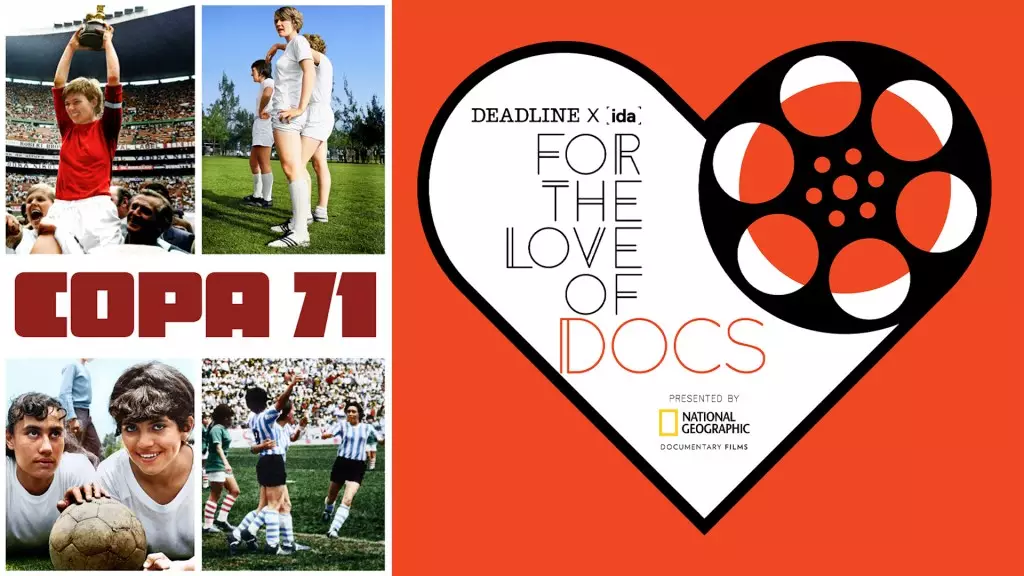In the annals of sports history, there are pivotal moments that inadvertently slip through the cracks of mainstream acknowledgment, overshadowed by larger narratives. One such moment occurred in 1971 during the unofficial Women’s World Cup held at Azteca Stadium in Mexico City. This monumental event attracted over 110,000 fervent fans, marking it as a groundbreaking gathering for women’s sports that remains unparalleled to this day. Despite its significance, the tournament has been subject to neglect, and the documentary *Copa 71* seeks to resurrect this forgotten piece of history.
The sheer magnitude of this extraordinary match-up featured teams from Mexico, England, Argentina, France, Italy, and Denmark, but its importance surpasses the mere athletic competition. It represents a turning point for women’s football, showcasing not only the skill of the players but also the immense potential for women in sports to carve out their place in a male-dominated arena. However, the lack of recognition and support from the official football governing bodies, such as FIFA, further complicates the narrative of women’s sports and underscores the struggles faced by female athletes.
The genesis of *Copa 71* can be traced back to Rachel Ramsay and James Erskine’s determination to illuminate the story buried beneath decades of oversight. As writer-producer Victoria Gregory recounts, the initial spark came from her husband’s chance encounter with an interview featuring a former England team player. This led to an ambitious search for archival footage and the challenge of connecting with aging athletes who, for various reasons, had remained silent about their experiences.
The project was not merely a technical undertaking; it involved building trust and rapport with former players who had faced media sensationalism and disrespect during their careers. Many had kept their accomplishments hidden, even from their families, due to the stigmatization and objectification they endured. Gregory highlights the delicate task of handling their stories with honesty and sensitivity, ensuring that *Copa 71* serves not only as a documentary but also as a platform for the players’ voices to be heard authentically.
As viewers engage with the documentary, it becomes apparent why former players might initially hesitate to share their narratives. The 1971 tournament, while a pinnacle of achievement, was marred by the treatment the players received from journalists. Media coverage often veered into the realm of sensationalism, emphasizing the players’ physical appearances rather than their athletic skills. This degradation mirrors a broader pattern of systemic sexism in sports journalism, which has persisted through the decades.
Additionally, FIFA’s reluctance to officially recognize a Women’s World Cup until 1991 reveals a profound bias within the sport’s governance. The organization’s prioritization of men’s football at the expense of women’s games reflects a broader societal tendency to devalue women’s achievements. This negligence stifled growth and recognition in women’s sports, a theme that *Copa 71* underscores vividly.
The parallels between the injustices faced by the players of Copa 71 and those of today are striking. Recent incidents, such as the controversy surrounding Luis Rubiales and the Spanish women’s football team, invite reflection on how much has genuinely evolved since that summer in 1971. Ramsay pointedly notes that discussions around power dynamics, financial independence, and media exploitation are not only relevant but are eerily similar to those twenty-five years ago.
The girls and women who play today face challenges that echo those of their predecessors. The documentary situates the narrative of Copa 71 within a context of ongoing battles for equity, respect, and opportunity in sports, calling for a reassessment of how women’s sports are valued and portrayed.
Copa 71 serves not only as a celebration of women’s football but also as a necessary action to reclaim recognition for those who fought through adversity to play. As Erskine elaborates, the story transcends monetary implications; it demands broader discussions about control and agency within sports. The disrespect exhibited through actions like Rubiales’s unwanted gesture exemplifies the need for women athletes to assert their rights in an environment that too often undermines them.
As audiences engage with *Copa 71*, they are not just viewing history; they are invited to partake in an ongoing dialogue about gender equality in sports. This documentary is a clarion call for future generations to honor the legacy of those who broke barriers in 1971 while challenging the status quo that still affects female athletes today.
The story of Copa 71, once forgotten, now stands as a testament to perseverance and a reminder of the work that lies ahead in the pursuit of gender equity in sports.


Leave a Reply